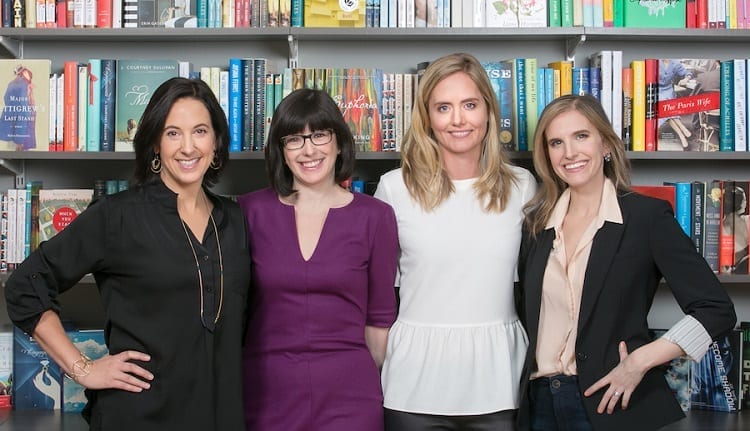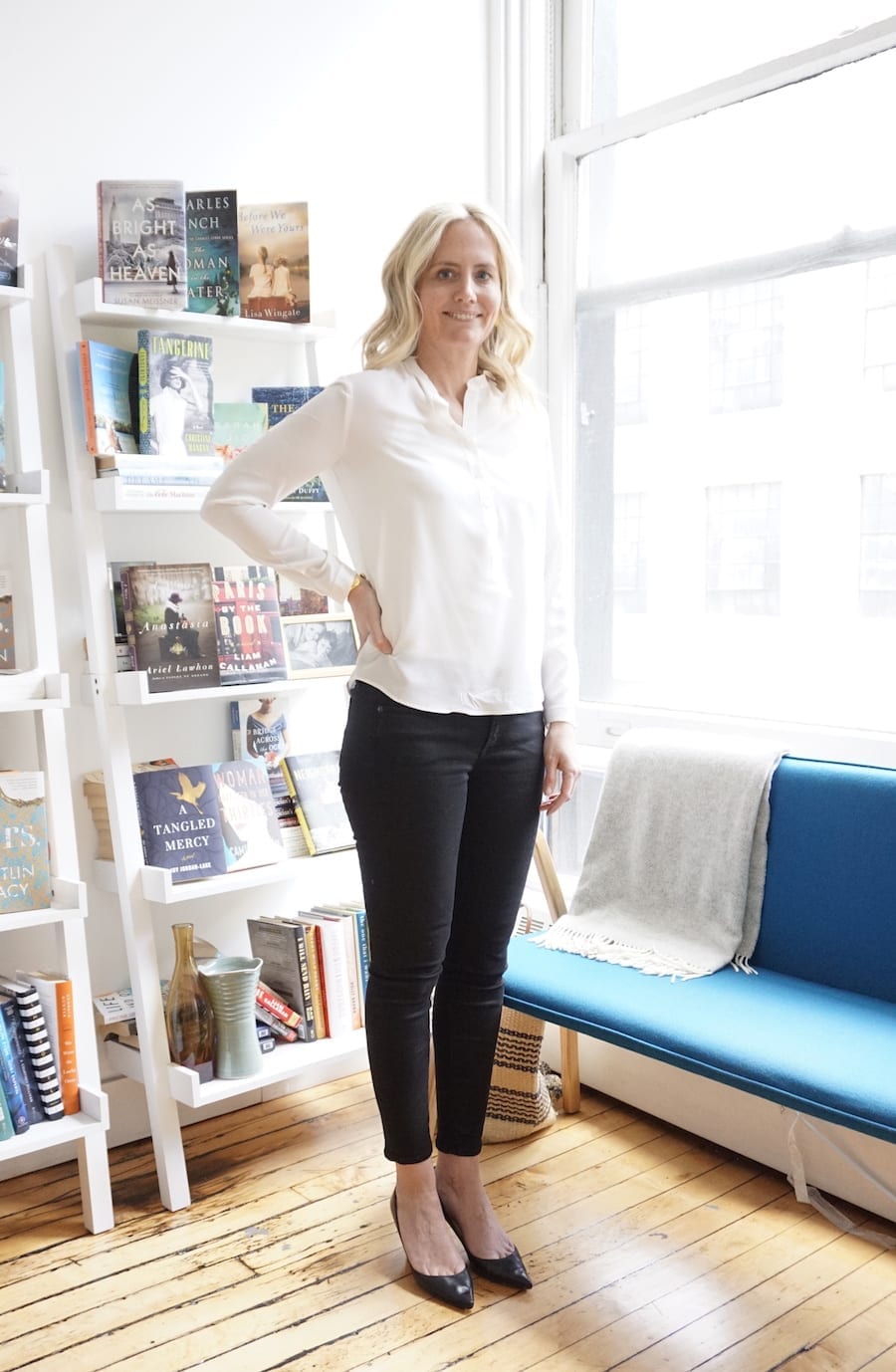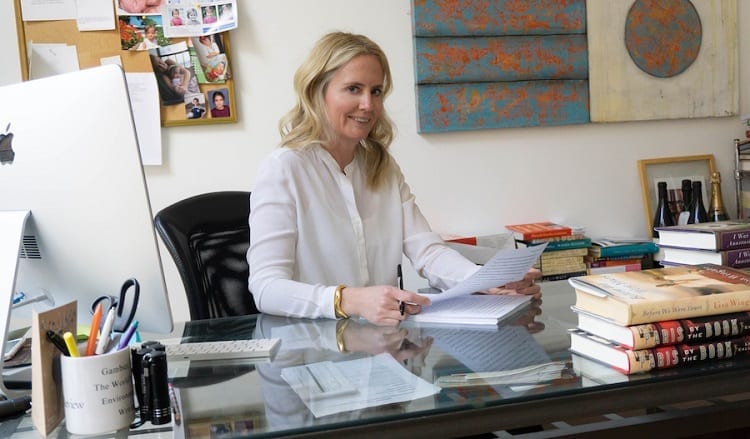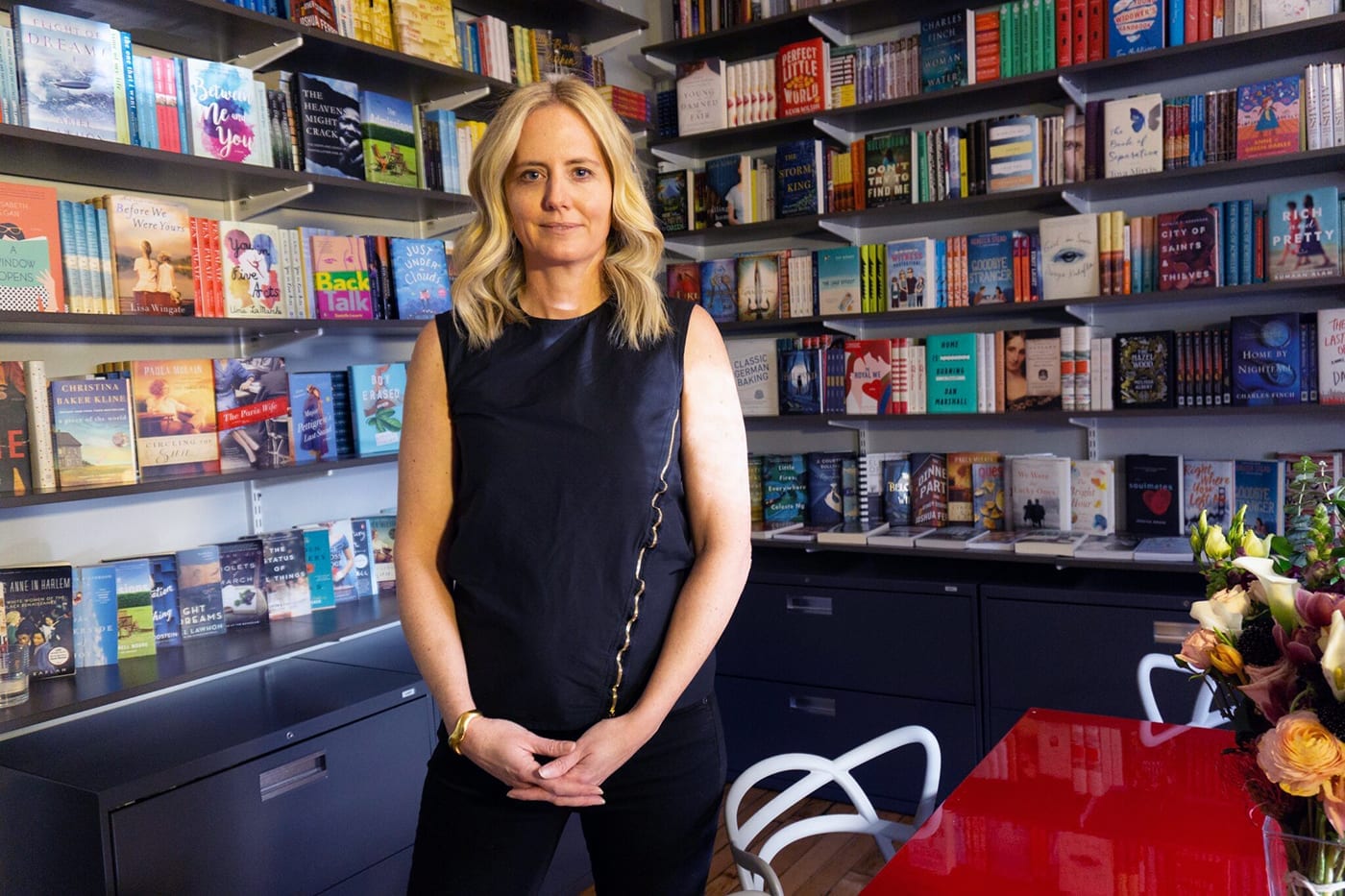Elisabeth Weed, Literary Agent
Elisabeth Weed’s passion for reading started at a young age; this passion led her to become a literary agent. Eventually, she joined forces with three other talented agents to form The Book Group, a full-service literary agency located in the heart of Manhattan.
Did you ever contemplate a profession other than a literary agent?
Growing up, I was always a big reader. My nose was always in a book. Th e natural thought process is to think, “Can you write a book like that?” I thought for a hot minute that I wanted to be a writer, and I took a couple of writing courses in college. I realized quickly that I was more interested in editing other people’s manuscripts, so I looked into editorial jobs out of college. When I realized how poorly they paid, I took a job at Bergdorf Goodman in their buying department. I thought it would be fun and fashionable. The job was not creative but about units and numbers, not about the clothes and the creative part of buying. I stayed in that position for a year, only because my father told me, “You have to stay in your first job for a year.” I truly cried every Sunday night. I had a boss that was like the boss in “The Devil Wears Prada.” Before working at Bergdorf’s, I didn’t know what a literary agent did or was. During that year, I learned that beyond editorial, on the publishing side, there are also literary agents that represent authors and then sell to the publishing houses. It sounded a little more autonomous to me. A lot of jobs on the editorial side pigeonhole you into editing one kind of book. I liked this idea of being able to pick and choose what I wanted to work on. Down the road, it led to opening my own agency, which was fun.
What does success look like to you?
Maybe where we are right now in building this agency? We set out to do it about five years ago, and we talked about it a lot. But never, in my wildest dreams, did I think it was going to be this much fun and bring me this much joy. I feel professionally grounded, and I also feel like I have time to enjoy my family and those other pieces. I think success is the balance of the two.
What inspires you?
A lot of things inspire me. I am inspired by working in books. Reading an amazing book and just being impressed by what somebody else creates really excites me. I am inspired by other people doing cool things.
How did you curate your own unique taste as a literary agent?
It has been evolving. Even though “The Lighthouse” is my favorite book, I have always gravitated towards plot-driven fiction. I love a really good story. If you look at my list now, that is what defines it, but it took some time. To be honest, when you’re starting out as an agent, you “eat what you kill.” You are working on commissions. There comes a time in your career when you are trying to sell what you can sell. In the last several years, it has been nice not to have to do that anymore. I can pick and choose what I love and feel passionate about. That truly is when I am at my best. I turn projects down all the time although I know they are sellable. I see them sold in our trade magazine, and I am OK with that. The fact is, I don’t take the project on because I don’t have a feeling that I am going to die if I don’t get to work on that book and work with that author.
You have a love affair effectively?
Yes, I do. I know it when I am reading it. I get sort of shaky and excited. I start writing my plans in the margins for how to go about selling the book and how to promote the book. All of these things are happening at once. All cylinders are firing.

The Book Group partners pictured from left to right: Faye Bender, Julie Barer, Elisabeth Weed, and Brettne Bloom.
You work in an environment with women you trust and with whom you have collaborated to build this agency. Has this been rewarding?
Yes. All four of us were assistants together, back in the day. We would go out for drinks at night and talk about “one day.” “One day we will join forces.” We each built our own agencies and decided to come together. Professionally, our individual careers were established. In our personal lives, we had gotten married and had young children. We thought we would be stronger together. We believed that before we joined forces. Now, almost three years in, we are still together, and I cannot tell you how true that is. It is incredible. We hold each other accountable for whatever we are doing in our professional life. We push each other. We sit around this red table. I will pitch a book, and they’ll say, “No, no, no, no. Start again. You must do better.” Or we will be in a negotiation. We all know women get paid less than men because they do not ask. We push each other to ask for more and ask for the best on behalf of our authors. At the end of the day, we are not just trying to get the money for the authors. Although money is a big part of the equation, hopefully, there is enough for them to live on while they write and are creative. The financial part is critical because it sets up the author at that publishing house. Much more attention will be given to that book based on those parameters. So yes, a very long answer to your question.
How do novels get on your desk?
A number of ways. I typically receive novels through referrals, although I am very proud to say that I read my submission list. You have a slush pile. That is what we call it in the industry. Anybody can look up our agency and send in a query. I read them every day. I do not respond to every query, but I read every single one of them. You never know what you will find. I have found some real gems in there, and I believe in that process.
Is it important to you that you like the author?
Yes. I would not have necessarily said that ten years ago. I like all my authors, and I find I work that much harder for them because we have a rapport. It is like any good relationship; you just want it to be healthy. You want to have a sense of good communication. You want to feel like you can give them the hard, bad news, and they won’t be mad at you. Sometimes they are, and that happens. I think that is the only way. We talk about it a lot here at this table. Honesty is the only way to proceed.

“I start writing my plans in the margins for how to go about selling the book and how to promote the book. All of these things are happening at once. All cylinders are firing.”
![]()
Your fingerprint is on the authors and novels you select. Can you explain that?
I do. Thank you. I do. As an agency, that is one thing we want to continue to do. We went down to Seva in New Orleans this past September. We invited all our authors and told them that we were going to be there. We threw a big party because we thought it was important for them to meet one another. We are trying to organize an informal writers group here in New York where authors can meet. Writing is a lonely endeavor. It might allow them to sort of lean on each other and be first readers or blurb each other’s books. I do think there is a synergy. I have a lot of historical fiction writers that are pals, and a lot of them have come to me through one of the others.
What prompted you to go out on your own?
I did not love the vibe of the agency I was in. This work is very autonomous in many ways. I didn’t like being at a big corporate agency that was putting more pressure on me than I was already putting on myself. Julie Barer, who is now my partner, had gone out on her own three years before, and I just saw her flourishing. I thought, “The sooner you start building it or make that step to start building it, the better.” It was terrifying. So, I actually quit. We were living in a tiny two-bedroom apartment on the Upper East Side. My husband gave me a loan, and he said, “Do it.” We were working out of the second bedroom, and a month later, I found out I was pregnant. I thought, “Oh, God, what is happening?” I worked out of the apartment knowing I had to make it work in that year and find office space and go from there. That was scary.
What was financially sustaining you?
I had three authors whose books I was able to sell right away. While I had previously been doing a lot more nonfiction, they were all fiction authors and lined up well. The first book I sold was Allison Winn Scotch, Time of My Life. That was my first New York Times bestseller and was fun.
Was there self-doubt putting out your own single?
Tons. Absolutely. I think the biggest self-doubt honestly was having a little baby and leaving him and going to work. I had many moments when I was jealous of friends that didn’t work. They were in the park with their little babies and watching the “Today Show” in the morning. I just remember my friend saying, “I am drinking coffee, and my baby’s in my lap.” I even said to my mom, who was no longer working, “I don’t think I can do this.” She did a very cool thing. Her friend, Nancy Novogrod, who was, at the time, the editor in chief of Travel & Leisure, just called me up, out of nowhere, and took me to lunch. My mom never said that she arranged the meeting, but I realized she was behind the scenes. Nancy said, “I know it’s really hard, but you just do what you can because you’ll regret it if you don’t.” I know a lot of moms are thrilled to go back to work. I was not one of them. It was hard, but I am so glad I listened to her because now I am at a place where I can do both.
How long did that struggle last?
To be honest, I still struggle. At this agency, we are all mothers. There were never any negative ramifications when one of us said, “I can’t make that because of this.” We really do make the family piece of high importance. That might mean I am on my computer at 8 o’clock at night and work till midnight, which I do, and that’s fine. That feels empowering to me because it’s on my terms. I try not to miss anything, but occasionally, I do, and that is tough.
How do you manage after-school sports?
We have an au pair who lives with us, which has been life-changing in terms of the schedule. I can schedule her for 45 hours a week, which is helpful when driving the kids different places. I work from home two days a week. So, if I need to be available at 4:30, I can drive somebody somewhere and get back on a call if I need to. It is also our community. Until three years ago, I was in New York. This would not have happened there. The thing I struggle with is the feeling that I am a social coordinator for my children. When I am here, I should be all here. Just now, I was texting about a playdate pickup. That seems to take up a lot of time.
Do you find it wears you down?
Definitely.
A constant struggle?
Yes, definitely. I complain about it all the time to my husband because I feel like he doesn’t know what I’m going through. He is a hands-on husband, and I feel very blessed that he is. He is a great dad, but still, he doesn’t know what their schedule is during the day. If I say, “I must be at an event tonight,” he’s home. We both try to have somebody home most nights with the kids. We will do a date night or go out with friends. But during the workweek, we try to have at least one of us home. Mealtime is important to us. We try to have a family dinner at least once a week, and we say grace because I think it’s important to have the kids go around and say things that they’re grateful for.

Do you think you can “have it all”?
I don’t know what “having it all” necessarily looks like. I think you can do a pretty good job of having a little bit of both.
What do you still wish to accomplish?
I want to take our agency to the next level and expand it a bit. In these last three years, we proved that we can build something worthwhile. I would like to see us focus on the younger generation here and support them.
What is your advice for the next generation?
I have been doing this for so long. It is very hard when you’re starting out because the pay is low as an assistant in publishing. The takeaway would be just stick it out. Once you get to that place, and you’re good at it, it can be financially and creatively rewarding. You can do it. I would hope that they are watching us; they have told us they are, and that they see how we work with one another and that we are a supportive group. I think it would be a combination of those two things. Just seeing what it looks like to be a successful agent, but also in a supportive group of women. You often hear that agencies are competitive, and agents are really competitive. That just doesn’t exist here. We have worked hard to make that the case.

